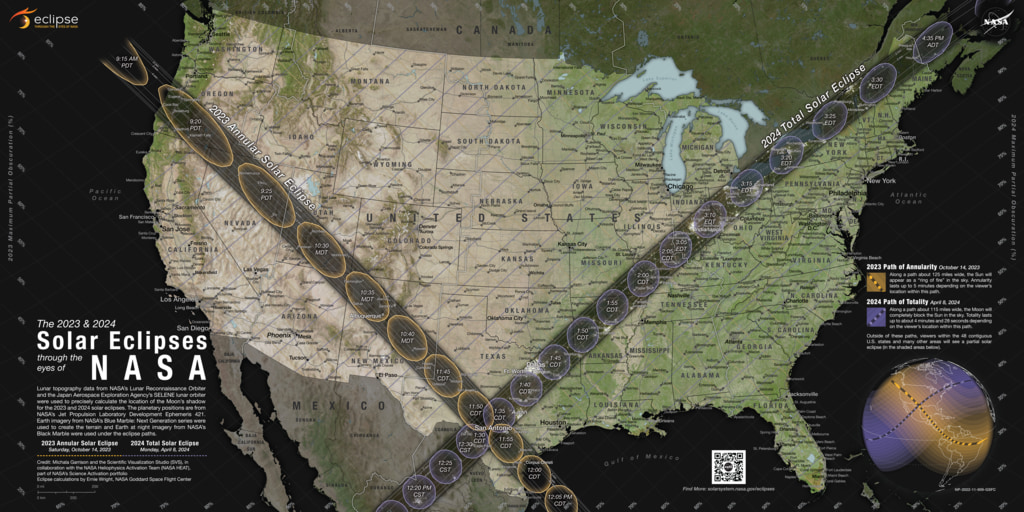Employers, get ready for an out-of-this-world experience on April 8, when the moon will completely obscure the sun’s rays and cast the Earth into darkness for up to 80 minutes during a total solar eclipse crossing over the U.S.
Thirteen states will be in the “path of totality.” Texas will experience the eclipse beginning at 1:30 p.m. CDT, then it will move across Oklahoma, Arkansas, Missouri, Illinois, Kentucky, Indiana, Ohio, Pennsylvania, New York, Vermont and New Hampshire before concluding in Maine at 3:30 p.m. EDT, according to NASA’s trajectory map of the eclipse.
NASA will host live coverage on its website and app beginning at 1 p.m. EDT that day. It also will livestream on its Facebook, X, YouTube and Twitch social media accounts, as well as offer a telescope-only feed on the NASA TV media channel and YouTube account.

Much like with March Madness, special events are often a source of distraction for workers—especially a rare occurrence that has a certain mystique, observed Ruhal “Rue” Dooley, SHRM-SCP, a SHRM Knowledge Center advisor.
The solar eclipse is one such distraction, and as employers, “we manage around distractions as opposed to eliminating the distraction,” he pointed out. That might mean having eclipse parties.
“Some employers can afford that luxury, and those employers should allow for that,” Dooley said, which could “advance the brand of the organization.”
But party or no party, employers need to be clear about work expectations, he said. Issue precautions about safely viewing the eclipse, be aware of potential commuting issues—be flexible, if possible, with scheduling—and remind those working outdoors to take precautions when the eclipse casts their area in total darkness.
Other factors for employers to keep in mind:
- School closures. Schools will be affected in some areas. They may extend their spring break, dismiss students early or give them the day off, which could result in higher levels of absenteeism than normal for employees with school-age children.
- Traffic congestion. Hayes County in Texas warns on its Emergency Services website that there may be eclipse-related traffic delays, road closures and a lack of parking. It also suggests employers consider moving their shipping day away from April 8, if possible. Eskenazi Health in Indianapolis is adjusting the timing of some of its shifts for employees commuting to or from work during the height of the eclipse, when they would be in total darkness.
- Temporary work stoppage. The Indiana Department of Transportation asked contractors and local laborers to halt work for the eclipse beginning at midnight on April 7 until sunrise on April 9 in anticipation of delays and traffic congestion resulting from an influx of eclipse visitors, according to KPC News.
- Strained resources. In areas that attract tourists for eclipse viewing, restaurants likely will be overcrowded and credit card machines may not be working. Additionally, there may be cell service disruptions. Employers may want to consider changing delivery or production schedules to avoid peak congestion and notify key vendors and customers about the potential impact to their operations, suggested insurance brokerage and risk management firm Oswald, based in Columbus, Ohio.
SHRM Knowledge Center advisors will be on hand to answer questions and provide resources for SHRM members contacting the center.
Have questions or feedback? Get in touch with Kathy at kathy.gurchiek@shrm.org.
An organization run by AI is not a futuristic concept. Such technology is already a part of many workplaces and will continue to shape the labor market and HR. Here's how employers and employees can successfully manage generative AI and other AI-powered systems.




